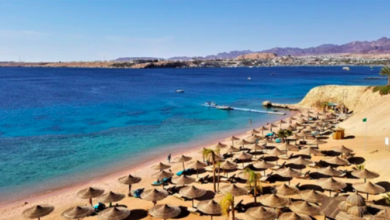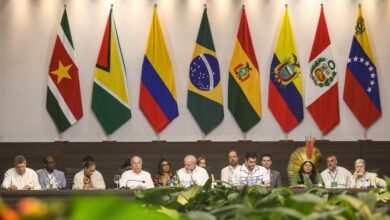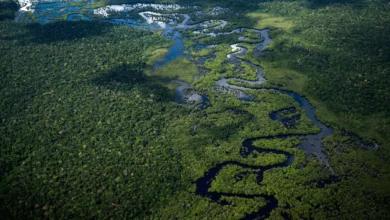BRASILIA — The upcoming Rio conference on sustainable development must yield a commitment to manage the world economy in a way that respects the environment and fights poverty, a Brazilian official says.
"I believe that Rio+20 will deliver the instruments to make sustainable development a paradigm for the economy, not just for the environment," Andre Correa do Lago, the host country's pointman for the June 20-22 summit, said in an interview with AFP.
"I believe that we can have a convergence among the emerging, poorest and developed countries" with respect to this objective, he added.
The Rio+20 gathering, the fourth major summit on sustainable development since 1972, is to bring together at least 100 world leaders along with foreign ministers. It will also host a forum of global corporate executives.
The participants will take stock of the health of the planet, focusing on growth, food security, access to water, lifestyles, energy, biodiversity and climate.
One of the key proposals will be to define "sustainable development goals" that commit countries to meeting targets in the areas of food security, access to water, green jobs and even "sustainable production and consumption models."
These goals would complement the poverty-reduction Millennium Development Goals set by 192 countries in 2000.
The summit will seek to outline a path toward a "green" and social economy that can balance economic growth, poverty eradication and protection of the environment.
"Rio+20 may be the moment when people realize how much the world has changed," said Correa do Lago, who heads the foreign ministry's environment department.
Developing countries insist that the commitments to a sustainable green economy must be honored by rich countries and not just by the developing world.
The summit negotiators hope to enlist the support of leading multilateral institutions.
The International Monetary Fund and the World Bank will discuss the summit's agenda items later this month at a meeting sponsored by UN chief Ban Ki-moon, outgoing World Bank President Robert Zoellik and Brazilian Finance Minister Guido Mantega.
"There is no point" in debating how to steer the world economy toward sustainable development if we do not involve "those entities that are those which economic circles take seriously," said Correa do Lago.
"The change in the patterns of production and consumption is absolutely key," he stressed, particularly since "from 1992, hundreds of millions of people around the world have joined the middle class," he added.
These people have joined the consumerism wave in a planet that has for some time made clear that its resources are limited and that issues such as global warming are urgent, he noted.
Other goals at the summit include getting world leaders to agree to measure their growth, not just in terms of GDP expansion, but also with social and environmental indicators.
Environmentalists and non-government organizations warn against a summit that would merely yield a vague final statement of good intentions.
Correa do Lago, conceding that the global economic slowdown hangs over the negotiations, however said: "the crisis shows that what is happening is wrong. This is an opportunity to rethink the economy."
And he said the summit was not just for the world's political and business elites but also for citizens.
"What is important for the average citizen is to realize that all the options of consumers have an impact on sustainable development… the cars they buy, the trip they make, how they heat water in their homes," Correa do Lago said.




